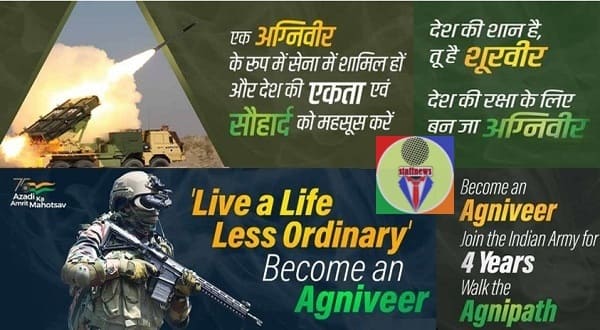Agniveer Recruitment: Delhi High Court upholds Centre’s Agnipath Scheme
Delhi High Court upholds Centre’s Agnipath Scheme
The Delhi High Court has upheld the validity of the government’s military recruitment scheme Agnipath. The high court said the Agnipath scheme was introduced “in the national interest” and dismissed a batch of pleas challenging it.
The Delhi High Court on Monday upheld the constitutional validity of the government’s military recruitment scheme Agnipath, saying it does not find any reason to interfere with the scheme.
“The Agnipath scheme was introduced in the national interest and to ensure that the armed forces are better equipped,” the court said.
A division bench of Chief Justice Satish Chandra Sharma and Justice Subramonium Prasad announced the judgment.
There were at least 23 petitions filed challenging the scheme and all the petitions were dismissed by the court. The Supreme Court last year refused to entertain a fresh petition filed by an advocate seeking an investigation into the protests that followed after the introduction of the Centre’s Agnipath scheme.
Protests broke out in several parts of the country after the government rolled out the Agnipath scheme due to its shorter tenure and fewer benefits it offers. The scheme proposes to induct the youth temporarily into the defence forces for a span of four years and they will be known as Agniveers.
Extract of Judgement Part:
“86. The Petitioners, during the course of hearing, also sought to argue that the stated objective of maintaining demographic balance in the Armed Forces through the rallies is misconceived since such rallies were also conducted in Delhi and Bhopal. This argument too does not find favour with this Court as we cannot take a myopic view of the objective sought to be achieved by the rally recruitment. During the pandemic, we were confronted with unprecedented and uncertain times. Such unprecedented times warranted that certain decisions be taken in public interest to ensure that the Armed Forces could function optimally. It is in such public interest that a handful of rallies were conducted in cities. This by itself does not mean that the purpose of rallies, which is to maintain demographic balance, was abandoned by the Government. This Court does not find any fault with this decision of the Government, which was carried out in good faith, and in larger public interest.
87. We have gone through the genesis of the two principles of equity, and the jurisprudence governing their applicability. We have also had the occasion to go through certain cases, with similar facts; wherein a recruitment process was halted midway. It emerges that firstly, the Petitioners have no vested right to seek such recruitment, and secondly, that promissory estoppel and legitimate expectation find themselves severely restricted by the overarching concerns of public interest.
88. We have extensively gone through the Agnipath Scheme, and can conclusively state that this Scheme was made in national interest, to ensure that the Armed Forces are better equipped. Due to this, this Court finds that the Petitioners have no vested right to claim that the recruitment under the 2019 Notification and CEE Examination needs to be completed. Furthermore, both promissory estoppel and legitimate expectation cannot be applied in the instant case to force the Government to complete the recruitment keeping in mind larger public interest.
89. In light of this, all the Writ Petitions stand dismissed, along with the pending application(s), if any.”
Click to view/download the PDFNews Source: https://www.indiatoday.in/law/story/delhi-high-court-upholds-government-military-recruitment-scheme-agnipath-2340071-2023-02-27

COMMENTS